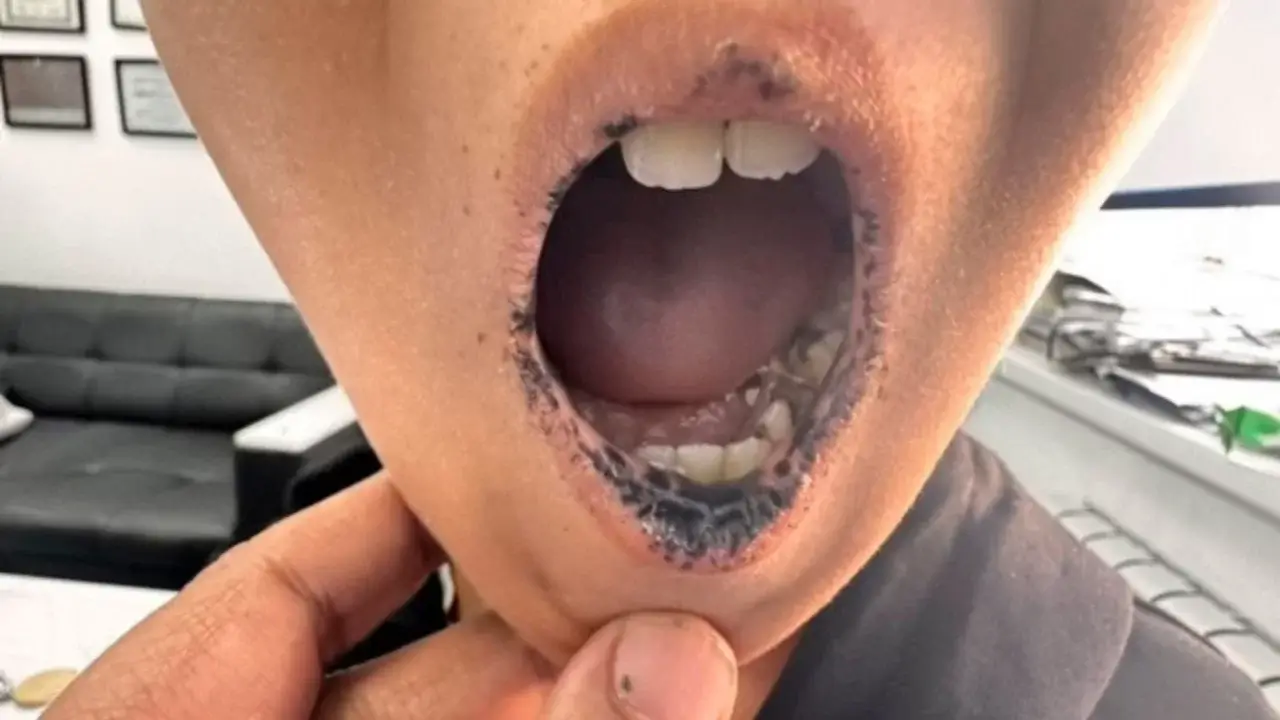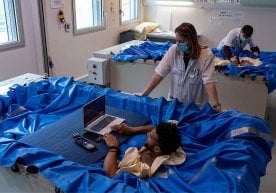A rare and dangerous syndrome has been discovered in children in Kyrgyzstan

In Kyrgyzstan, a concerning case has been recorded in the healthcare sector. A patient suffering from the rare disease known as Peutz–Jeghers syndrome has been admitted to the pediatric oncology department of the Center for Maternal and Child Protection. This was announced by the head of the institution, Sulton Stambekov.
According to the specialist, this disease is hereditary and most often manifests itself in childhood. Distinctive dark brown or black spots appear on the skin and mucous membranes, especially around the mouth, on the lips and cheeks, and sometimes on the hands and feet. In addition, patients have a high probability of developing polyps in the gastrointestinal tract. These polyps usually occur in the small intestine but can also appear in the stomach, colon, and other internal organs.
Stambekov noted that such polyps are mainly hamartomas, which are benign formations. However, over time they increase the risk of malignant transformation and cancer development. The primary cause of the syndrome is a mutation in the STK11 (LKB1) gene, which is inherited in an autosomal dominant manner. This means that if one parent has the disease, the child has about a 50 percent chance of inheriting it.
Experts warn that the greatest danger of this syndrome is the increased risk of several types of cancer, including pancreatic, intestinal, and stomach cancer. In women, breast, ovarian, and cervical cancer are common risks, while in men, testicular cancer — especially the rare Sertoli cell tumor — is more likely.
Symptoms include abdominal pain, intestinal obstruction or constipation, gastrointestinal bleeding leading to anemia, and chronic fatigue. In some patients, mucosal pigmentation and polyps cause serious health issues from childhood.
Diagnosis is carried out using endoscopy of the stomach and intestines, colonoscopy, capsule endoscopy (for the small intestine), and genetic testing. Treatment involves removing polyps either endoscopically or surgically, along with regular screening and preventive measures.
Doctors urge parents to be vigilant and seek medical attention immediately if unusual spots or abdominal pain appear in children. Early diagnosis and continuous monitoring are crucial for preventing severe consequences of the disease.
Read “Zamin” on Telegram!





















